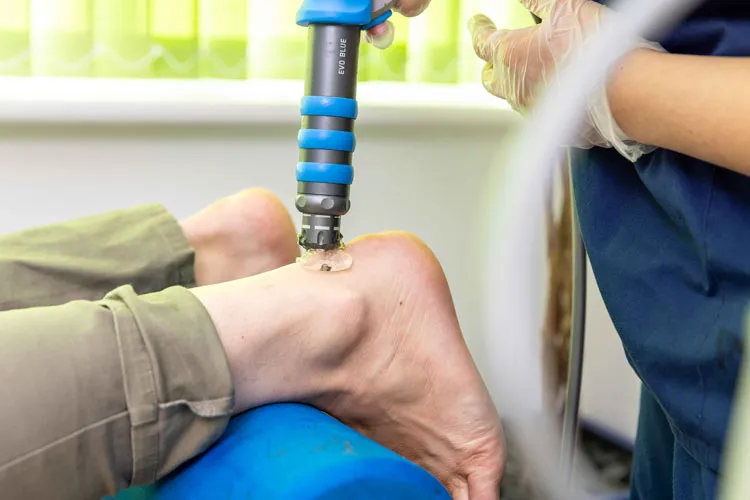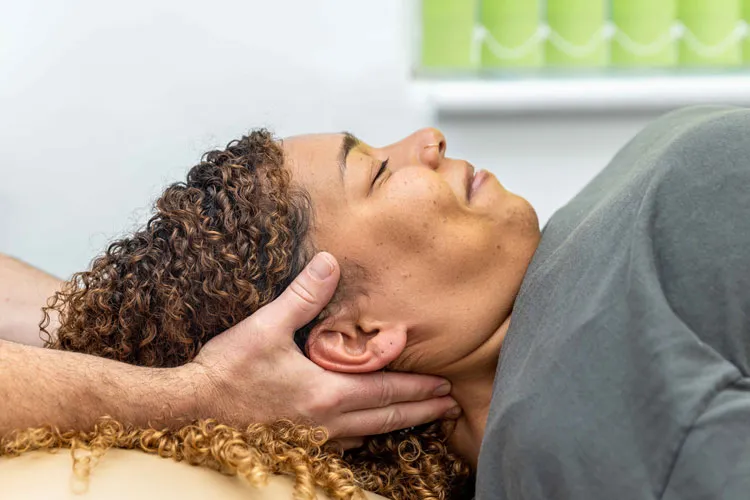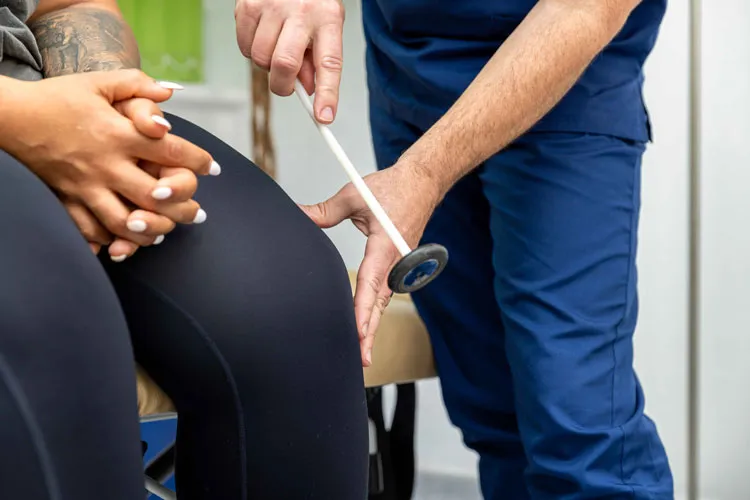Can Chiropractors help with tendon pain?
When we think about Chiropractic care, bones, and joints are usually the first things that come to mind. But did you know that we can also help with tendon pain? You may have heard of some of these common conditions before:
- Rotator Cuff Tendinopathy
- Tennis and golfers’ elbow
- Hip pain & IT band problems
- Knee or Patellar pain / Hamstrings Tendinopathy
- Achilles pain
- Plantar fasciitis
Yes! These are all injuries involving your tendons.
What is a tendon?
Think of the tendon as a bridge between your muscles and bones. It is made of dense fibrous connective tissue that helps transmit muscle strength to the bones and joints, allowing movement and maintaining good body posture.
Any injuries involving the tendons are known as Tendinopathy. This can then be further classified as Tendinitis or Tendinosis.
Tendonitis occurs if you have a recent injury that results in inflammation & pain within the tendon.
If you have previously experienced tendonitis or have had several repeated small injuries/ tears without receiving appropriate treatment or if the body has failed to heal appropriately, that can result in Tendinosis, a chronic degeneration of the tendon. This over-use condition leads to inadequate tendon repair, predisposing the tendon to micro-tears and degeneration.
Where can it occur & How does it present?
It can occur in any area of the body where there are tendons but the more common places are:
- Shoulder (Arm pain when trying to reach out or up?)
- Elbow (Pain & tenderness on the bony knob of the elbow?)
- Wrist
- Hip
- Knee
- Foot (Pain when you start walking after getting out of bed?)
- Achilles Tendon (Heel pain at the back of the leg or above the heel after running?)
The classic characteristics are increasing pain on the tendon site, especially during loading or movement that utilises the tendon. Pain is usually described as sharp, stabbing in the early stages, and gradually becomes a dull ache after a few weeks. Swelling, redness, and warmth over the affected area might be noticeable. General muscle weakness & stiffness in joint movements will be evident.
Who is more likely to get Tendinopathy?
- Adults aged 30 and over
- Doing activities involving repetitive movements
- Certain occupations (Carpenters, Gardeners, Construction workers, Hairdressers, Office workers, etc)
- Athletes (Tennis, Golf, Running, etc)
- People with chronic diseases (such as Diabetes, Rheumatoid Arthritis, Hypercholesterolemia, Gout, etc)
- Taking medications (such as Fluoroquinolones, Statins, Corticosteroids, Breast Cancer drugs, etc)
Self-help tips for an acute tendon injury:
Follow these simple steps for the first 2 to 3 days
- Relative rest
- Apply an Ice pack on the tendon for up to 10 minutes every 3 hours
- Modify your daily activities and exercise habits
- Consult your local pharmacist for painkillers recommendations such as Paracetamol
When you can move the injured area without pain stopping you, start with some gentle movements or stretches so the joint does not become stiff. Symptoms from mild tendon injuries should gradually improve within 2-3 weeks.
If you are still suffering from pain after 2 weeks or experiencing severe tendonitis, our team at West Wickham Chiropractic Clinic can help you!
We are able to offer non-invasive treatment of acute and chronic tendon pain. Our experienced team can assess, diagnose and manage most tendon complaints. Our direct access to Diagnostic Ultrasound imaging allows an immediate and accurate diagnosis and your suitability for treatment.
Our clinicians are also able to provide pain relief with our in-house state-of-the-art Shockwave Machine. After your initial treatment weekly visitations for shockwave treatment will advance tendon healing. Alongside this treatment, we combine the application of chiropractic manipulation and physical therapy rehabilitation to accelerate your recovery.
It is important to receive the appropriate treatment & care promptly for the best possible recovery outcome and to prevent any further injuries.
Seek medical attention immediately if you think you have ruptured (torn) a tendon or general illness. The pain tends to be sudden and severe. You might have also heard a popping or snapping sound during the accident or activities. Surgeries might be needed to remove damaged tissue or repair a torn tendon.
Bibliography
Bordoni B, V. M. (2022, 07 18). Anatomy, Tendons. Retrieved from https://www.ncbi.nlm.nih.gov/books/NBK513237/
Gabriella Ode, M. (2019, 01 3). What Is the Difference Between Tendonitis, Tendinosis, and
Tendinopathy? Retrieved from https://www.sports-health.com/sports-injuries/general-injuries/what-difference-between-tendonitis-tendinosis-and-tendinopathy
James H-C. Wang, P. B. (2023, 01 12). Tendinopathy. Retrieved from BMJ Best Practise: https://bestpractice.bmj.com/topics/en-gb/582
NHS. (2020, 07 15). Tendonitis. Retrieved from https://www.nhs.uk/conditions/tendonitis/
professiona, C. C. (2020, 12 02). Tendinitis. Retrieved from https://my.clevelandclinic.org/health/diseases/10919-tendinitis
Romeo, P. L. (2013). Extracorporeal Shock Wave Therapy in Musculoskeletal Disorders: A Review
Med Princ Pract. Retrieved from https://pubmed.ncbi.nlm.nih.gov/24217134/
Tidy, D. C. (2021, 01 25). Tendinopathy and Tenosynovitis. Retrieved from https://patient.info/bones-joints-muscles/tendinopathy-and-tenosynovitis-tendinosis


